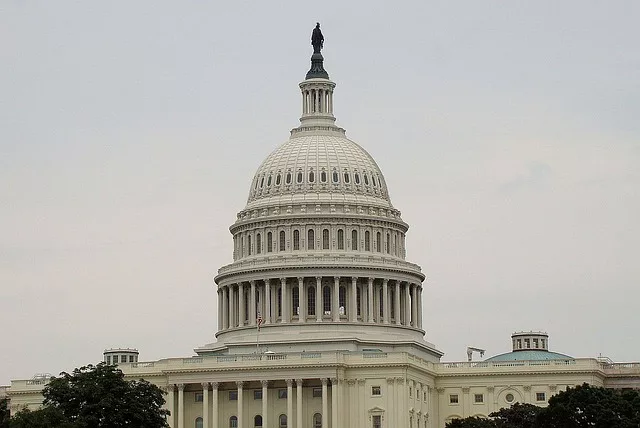Avoiding Foreclosure on a VA Mortgage

If you have a VA mortgage and experience financial issues that make it hard to keep up with your mortgage payments, you are not alone. The good news is that the sooner you act, the more options you may have to keep your home and avoid foreclosure. What should a VA borrower do in tough financial times to avoid defaulting on their mortgage?
Get Help from the Department of Veterans Affairs
Some borrowers don’t realize they have financial counseling options through the VA, and those options apply regardless of the type of mortgage you have. You can have a VA loan or a non-VA mortgage and get assistance from a VA counselor. Financial advice and homeowner counseling can be a big help in the early stages of financial difficulty.
Why? Because you’ll need to know what your rights and responsibilities are in advance. Don’t let a missed payment happen before you reach out to get more information and help. You’ll be glad you didn’t wait.
If you have a VA loan, you can contact the VA to ask for the help of a VA loan technician. If your mortgage falls past due longer than 60 days, you will have a VA loan technician automatically assigned to you.
Be advised, this is one of the VERY FEW times you will have something done for you automatically in this process. Be proactive and don’t assume any help with your home loan aside from the technician being assigned to your case as automatic.
Get assigned a VA loan technician by calling the Department of Veterans Affairs at 877-827-3702. You can also email the VA for this type of help at LGYLANational.VBACO@va.gov. You will need to include your name and address as it is displayed on your home loan documentation.
Related: VA Loan Foreclosures Paused
Contact Your Loan Servicer
It’s crucial to contact your loan servicer as soon as you experience the financial difficulty that could later interfere with your mortgage payments. The longer you wait, the fewer your options may be.
Your lender can work with you to make arrangements before you miss a single payment, though some foreclosure avoidance options are only available at certain stages of the problem.
Your lender cannot help you if you do not contact them to make arrangements. You may be offered a loan forbearance, a loan modification, or other options that can help you keep your home.
Beware of Scams
When you reach out to your lender for help, keep in mind that you should never sidestep your loan servicer for any reason. A common foreclosure avoidance scam involves convincing the homeowner to make payments to someone other than your lender, or to make arrangements about the loan without notifying the lender.
These are all scams, never fall for this trick. Sidestepping the lender is not how foreclosure avoidance works. The same rules are true if someone asks you to, as a foreclosure avoidance measure, sign the title of your home over to someone else.
Never ever do this.
Timeline to Foreclosure
How long until your home is foreclosed upon? Your loan servicer must generally contact you a little over a month after your first missed VA loan payment or your first incomplete VA mortgage payment.
45 days later, if you are still delinquent, the lender is required to continue to try contacting you for loan modification or other foreclosure avoidance options. After 120 days, the lender has the option to start foreclosure but is not required to if you have already started working with them to save your investment. At 120 days delinquent, the lender cannot foreclosure on you if you are in the process of being evaluated for a loan modification or other foreclosure avoidance measures.
The longer you wait to get assistance, the fewer your options may be. And keep in mind that the longer the delinquency period goes on, the more unforgiving the process may be. A good example? The foreclosure process may be initiated anew if you miss payments under any foreclosure avoidance program
VA Loan Foreclosure Avoidance Measures Your Lender May Offer You
According to the Department of Veterans Affairs, there are some basic ways to avoid foreclosure. They include, but may not be limited to:
- A VA Loan Repayment plan for those who have already missed payments. The repayment plan allows you to resume monthly payments at a higher amount to cover those that were missed. This is one reason we urge people to act as soon as possible on their VA loans if those payments are in jeopardy. Wouldn’t you rather pay extra to cover just one missed payment instead of more?
- A VA Loan “special forbearance allows you extra time to make up the missed payments in full.
- VA Loan modification may be an option; this works by adding the missed payments to the total loan balance and readjusting the loan term.
- Selling the home to avoid foreclosure may be an option.
- A VA Loan short sale is an option for those who owe more than the home is worth. With the lender’s participation you may be allowed to sell the property for less than you owe with the lender accepting the total amount of the sale as full payment of the mortgage. A VA loan short sale could result in a loss of future VA loan benefits, ask your lender or contact the Department of Veterans Affairs to learn more about when this may apply.
- Deed in lieu of foreclosure is the one time you should consider signing the deed of your home to someone else, but in this case it is ONLY the loan servicer who should receive the deed. Do NOT sign the deed to your home over to a third party. Discuss this option with your loan servicer as it may result in a reduced VA loan benefit or loss of your VA loan benefit in the future.
What Happens If Your VA Mortgage Goes Into Foreclosure?
Much depends on when your VA home loan is closed, but in general, you should know that a VA loan foreclosure results in a debt to the government that you may be required to repay. If your VA mortgage closed before January 1, 1990, you are required to pay back the full amount that the government paid to satisfy the lender. This is typically not the full amount of the loan.
For VA mortgages that closed on or after 1 January 1990, you’ll be required to pay your loan back if the VA finds evidence of fraud, purchasing in bad faith, or misrepresentation.
What’s Next?
If you are in trouble financially and worry about your ability to make your VA mortgage payments, contact your loan servicer before missing a single payment. Ask the lender about foreclosure prevention options such as loan forbearance, loan modification, or other adjustments.
The sooner you act, the more options you have but don’t fall prey to scammers who ask you to sidestep your lender, sign the deed of your home over to a third party, or make payments to someone other than the bank.
If you are currently serving, remember that financial responsibility issues extend to VA loans–it’s not just about proper use and payment of your government-issued travel card and maintaining adequate financial support of your family (where applicable).
If you need to pass a security clearance review or obtain a new clearance, home loan issues may be included in that review. Get help early to avoid your VA mortgage loan from becoming a stumbling block to your military career.
It’s better to be able to report that you had some financial difficulty but resolved the issue because you were proactive than to admit that you didn’t seek assistance in a timely manner to prevent the issue from becoming a bigger liability.
Related: How to Apply for a VA Mortgage
About the author
Editor-in-Chief Joe Wallace is a 13-year veteran of the United States Air Force and a former reporter/editor for Air Force Television News and the Pentagon Channel. His freelance work includes contract work for Motorola, VALoans.com, and Credit Karma. He is co-founder of Dim Art House in Springfield, Illinois, and spends his non-writing time as an abstract painter, independent publisher, and occasional filmmaker.


